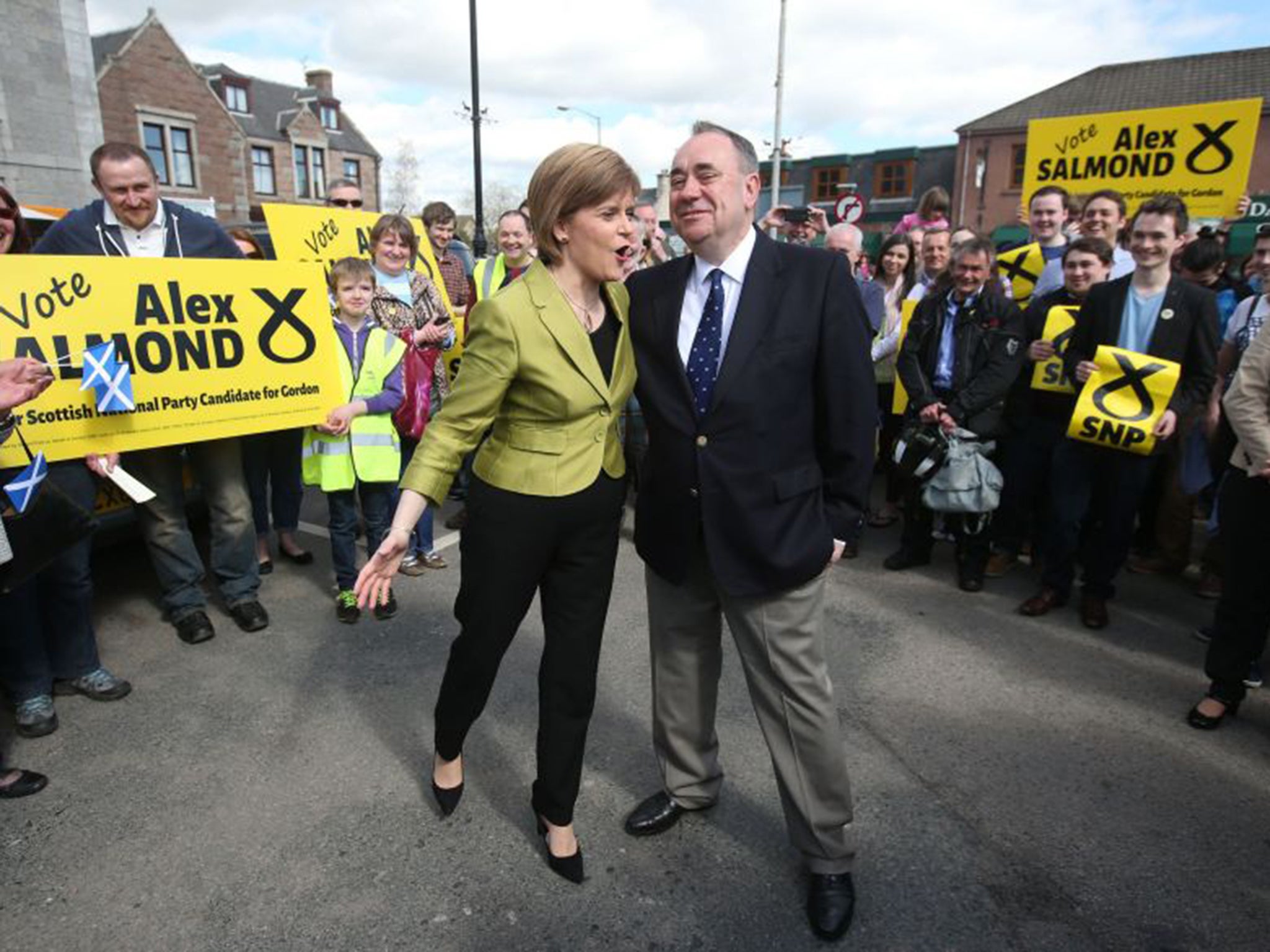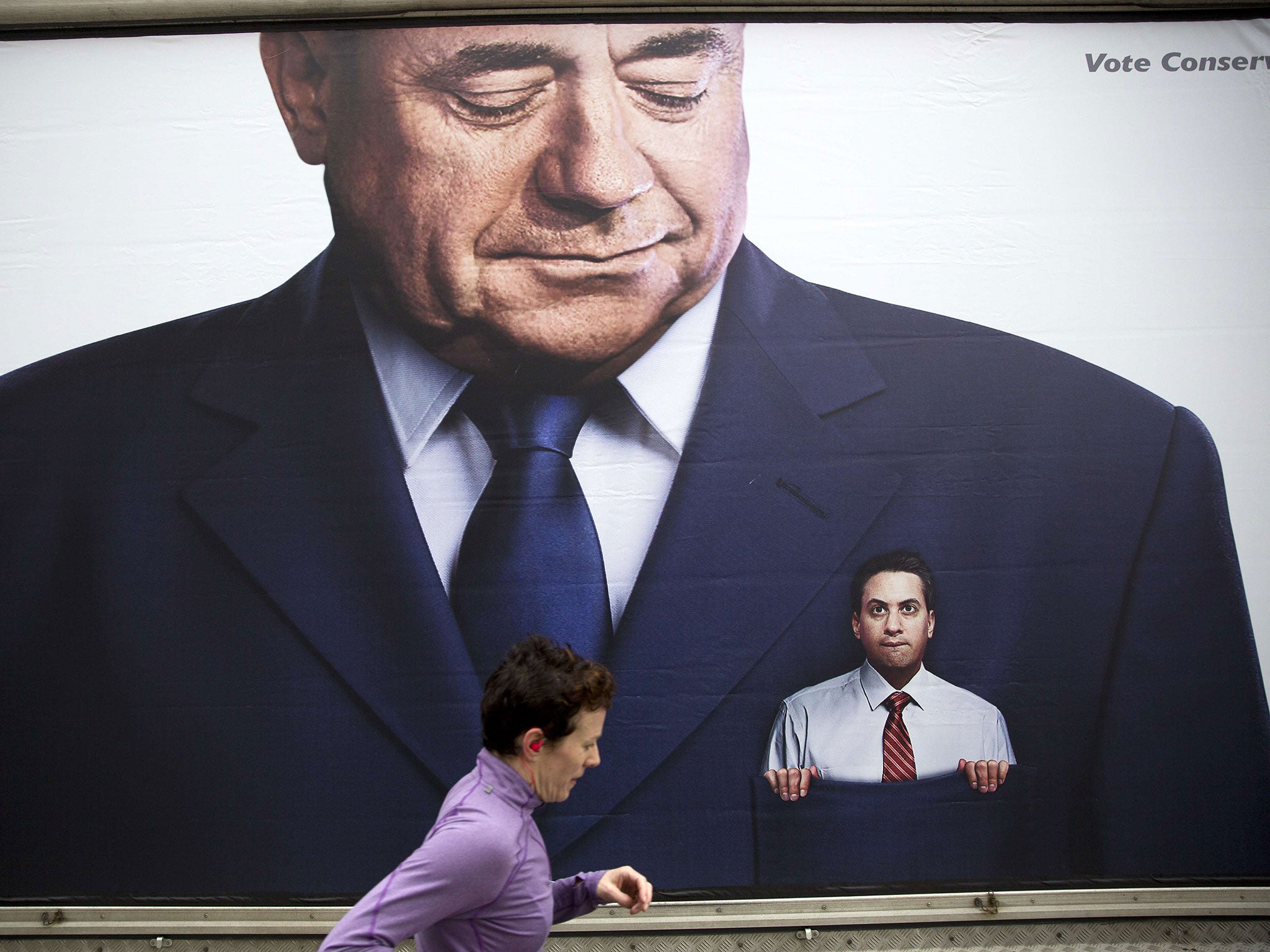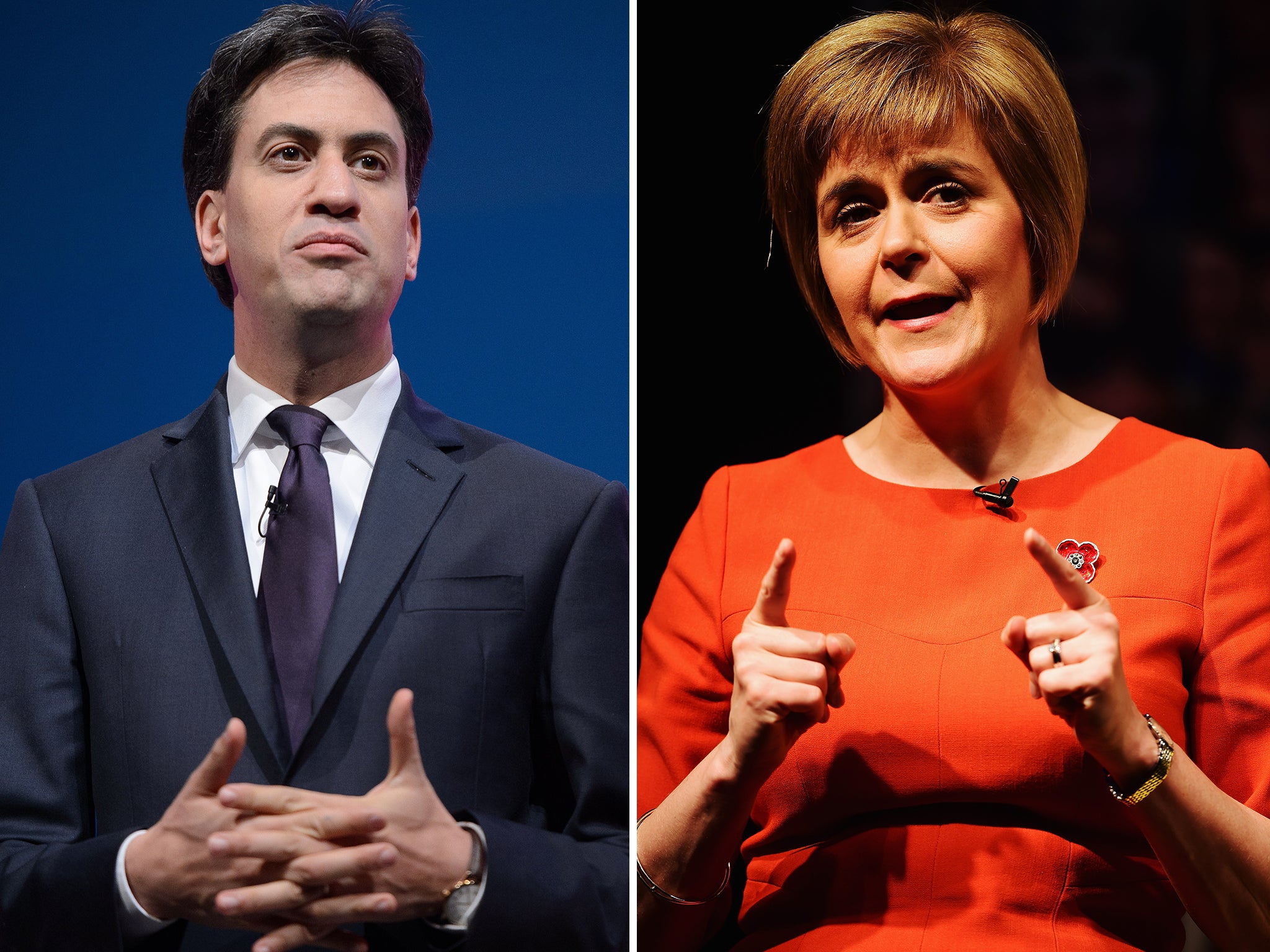General Election 2015: Nicola Sturgeon puts Alex Salmond in his place by saying she’ll be in charge of post-election talks
SNP leader will not be an MP but insists she will still lead negotiations in the event of a hung parliament

Your support helps us to tell the story
From reproductive rights to climate change to Big Tech, The Independent is on the ground when the story is developing. Whether it's investigating the financials of Elon Musk's pro-Trump PAC or producing our latest documentary, 'The A Word', which shines a light on the American women fighting for reproductive rights, we know how important it is to parse out the facts from the messaging.
At such a critical moment in US history, we need reporters on the ground. Your donation allows us to keep sending journalists to speak to both sides of the story.
The Independent is trusted by Americans across the entire political spectrum. And unlike many other quality news outlets, we choose not to lock Americans out of our reporting and analysis with paywalls. We believe quality journalism should be available to everyone, paid for by those who can afford it.
Your support makes all the difference.Nicola Sturgeon has insisted she will be in charge of the SNP’s post-election negotiations with other parties in the event of a hung parliament – and not her predecessor Alex Salmond, who is expected to be elected to Parliament on May 7.
This is despite Ms Sturgeon not standing to become an MP.

With the SNP expected to win the vast majority of Scotland’s 59 seats in the House of Commons, the Scottish nationalists will almost certainly play a very influential role in the formation of the next government.
Angus Robertson currently leads the SNP in Westminster, while former leader and ball-buster Mr Salmond is likely to be a prominent figure in Westminster politics if elected to Parliament.
But the Scottish First Minister made it clear who would be leading the party in an interview with the Daily Mail.

"I'll be there. I'm the leader of the SNP, I'll be in charge of any decisions and negotiations and anything that happens after May 7," she said.
Ms Sturgeon also denied that a minority Labour government, propped up by the SNP, would lead to chaos in government, pointing to her experience of being part of a minority government in Edinburgh.
She said the Fixed Term Parliaments Act made the possibility of a minority government falling much less likely and said this strengthened the SNP’s power at Westminster as the party would be able to extract more concessions from the governing party, without threatening a second election.
She said: “My experience of being in a minority government - and it's a very direct experience of being deputy leader in a minority government for four years... it can, contrary to what you are saying about reducing trust in politics, can have the opposite effect because the public see politicians having to win arguments rather than votes by sheer force of numbers. The experience of minority government in Scotland was stable - clearly, because it lasted for four years.
“So based on that experience I have a different view of what a minority government situation and I don't think it has to be unstable or ineffective. On the contrary.”
“The Fixed Term Parliaments Act does make it possible to change a government's position without threatening the existence of that government... including a budget, though I must say I'm not going into this trying to block a budget. That's not the mindset we are taking into this.
'But the Fixed Term Parliaments Act, in a House of Commons context, has made the prospect of a minority government a much more viable one.”
Join our commenting forum
Join thought-provoking conversations, follow other Independent readers and see their replies
Comments